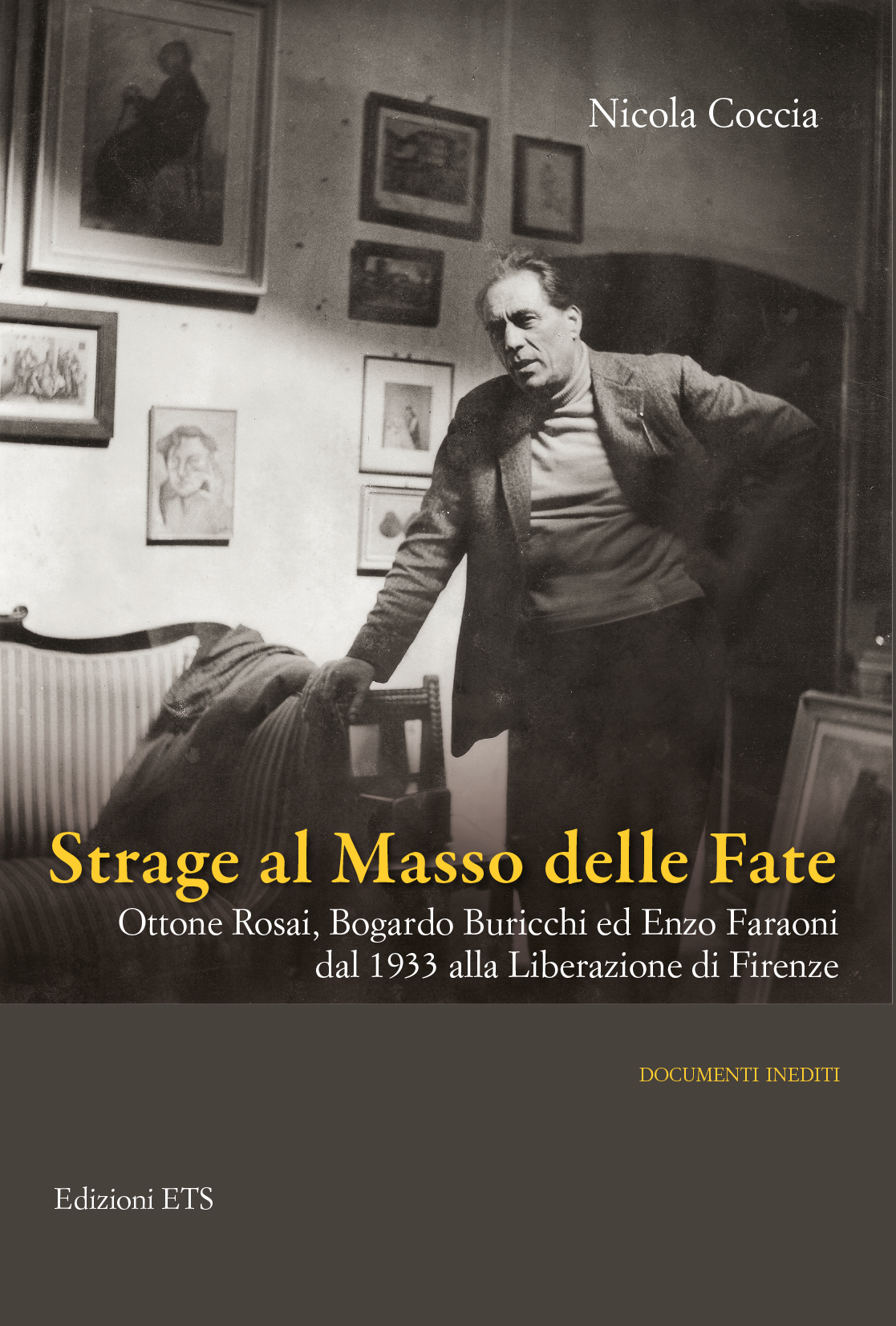Where and when
Orario
18:00
Museo Novecento
Who
Nicola Coccia
Author and Journalist
Sergio Risaliti
Marco Fagioli
Art critic
Free Entry
On Wednesday, May 4, at 6:00 pm, the volume Massacre at the Masso delle Fate. Ottone Rosai, Bogardo Buricchi and Enzo Faraoni from 1933 to the Liberation of Florence, published by Edizioni ETS will be presented at the Cinema Room of the Museo Novecento in Florence. In addition, the author Nicola Coccia, the Director of the Novecento Museum, Sergio Risaliti and the art critic Marco Fagioli will also speak during the meeting.
The work tells of an intertwining of lives in the background of a Florence of the late 1930s, the activity of a small partisan group led by a poet (Bogardo Buricchi) and a painter (Enzo Faraoni) up to the most important attack on the lines railway stations in central Italy and the arms factory. The effects of this assault are intertwined with the life of Ottone Rosai in whose house Bruno Fanciullacci, the most sought after gappist in Tuscany, takes refuge, but also with the killing of Giovanni Gentile and with the capture of the notorious Mario Carità and his worthy pupil. Pietro Koch who for a week had locked Luchino Visconti in a wardrobe.
The anti-fascist resistance of the Florentine intellectuals, painters and poets fills the pages of Coccia. Ottone Rosai emerges as a key figure, his house is a refuge for partisans, and through the work of the journalist he is redeemed, removing his person from relations – almost immediately repudiated – with the regime and instead welcoming an anti-fascist faith.
The volume comes to light after fifteen years of research and discussions by the author with the surviving witnesses of the resistance. And it allows us to learn about a discovery made by Coccia himself, through a document found in the State Archives, which allows us to broaden our vision of what happened at the Masso delle Fate. The narration of an episode that could – erroneously – seem secondary, (but which involves names that will become even more important in post-war Italy, such as that of Oriana Fallaci, Paolo Cavallina or Vasco Pratolini) is saved from oblivion with the book of Nicola Coccia.
Nicola Coccia
Nicola Coccia began collaborating with Avanti in 1966. He worked in the Florentine editorial office of “Lavoro” in Genoa, directed by Sandro Pertini. Hired to the Nation in the summer of 1978, he dealt with the main news events that have marked the history of Florence in the last 30 years.
In 2016 he won the Carlo Levi national prize with the book “L’arse argille consolerai: Carlo Levi from confinement to the Liberation of Florence through testimonies, photos and unpublished documents”, Edizioni Ets. In 2018 the director of the Uffizi, Eike Schmitd, and the mayor of Florence, Dario Nardella, named two squares on the sides of Palazzo Pitti, after Carlo Levi and Anna Maria Ichino, the woman who hid the Turin intellectual during the war and helped type Christ stopped at Eboli.
